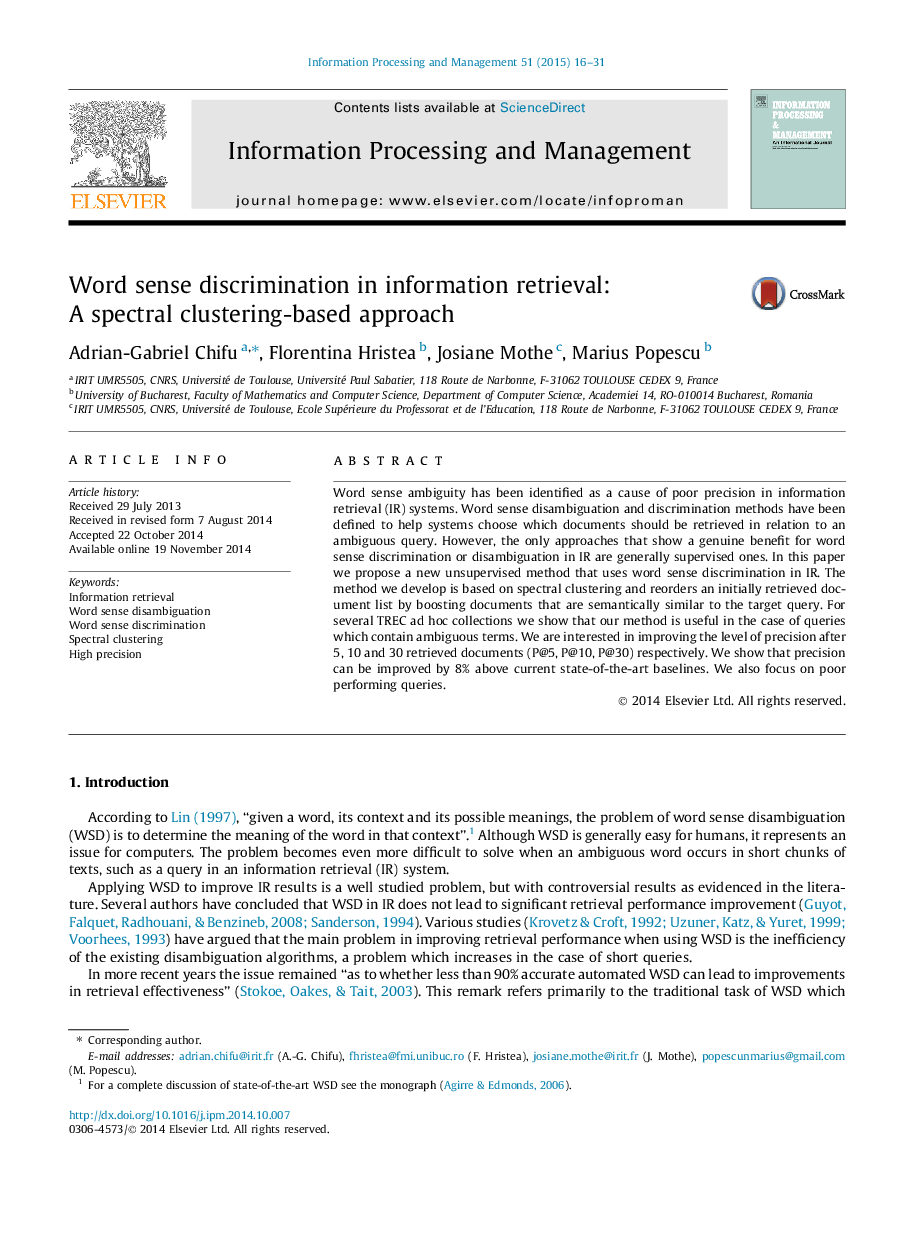| Article ID | Journal | Published Year | Pages | File Type |
|---|---|---|---|---|
| 515465 | Information Processing & Management | 2015 | 16 Pages |
•We propose a new unsupervised method that uses word sense discrimination in IR.•The re-ranking method is based on spectral clustering.•The effectiveness over queries with ambiguous terms is proved on TREC corpora.•Our interest regards improving the precision after 5, 10 and 30 retrieved documents.•The method improves results for queries with poor baseline performance.
Word sense ambiguity has been identified as a cause of poor precision in information retrieval (IR) systems. Word sense disambiguation and discrimination methods have been defined to help systems choose which documents should be retrieved in relation to an ambiguous query. However, the only approaches that show a genuine benefit for word sense discrimination or disambiguation in IR are generally supervised ones. In this paper we propose a new unsupervised method that uses word sense discrimination in IR. The method we develop is based on spectral clustering and reorders an initially retrieved document list by boosting documents that are semantically similar to the target query. For several TREC ad hoc collections we show that our method is useful in the case of queries which contain ambiguous terms. We are interested in improving the level of precision after 5, 10 and 30 retrieved documents (P@5, P@10, P@30) respectively. We show that precision can be improved by 8% above current state-of-the-art baselines. We also focus on poor performing queries.
